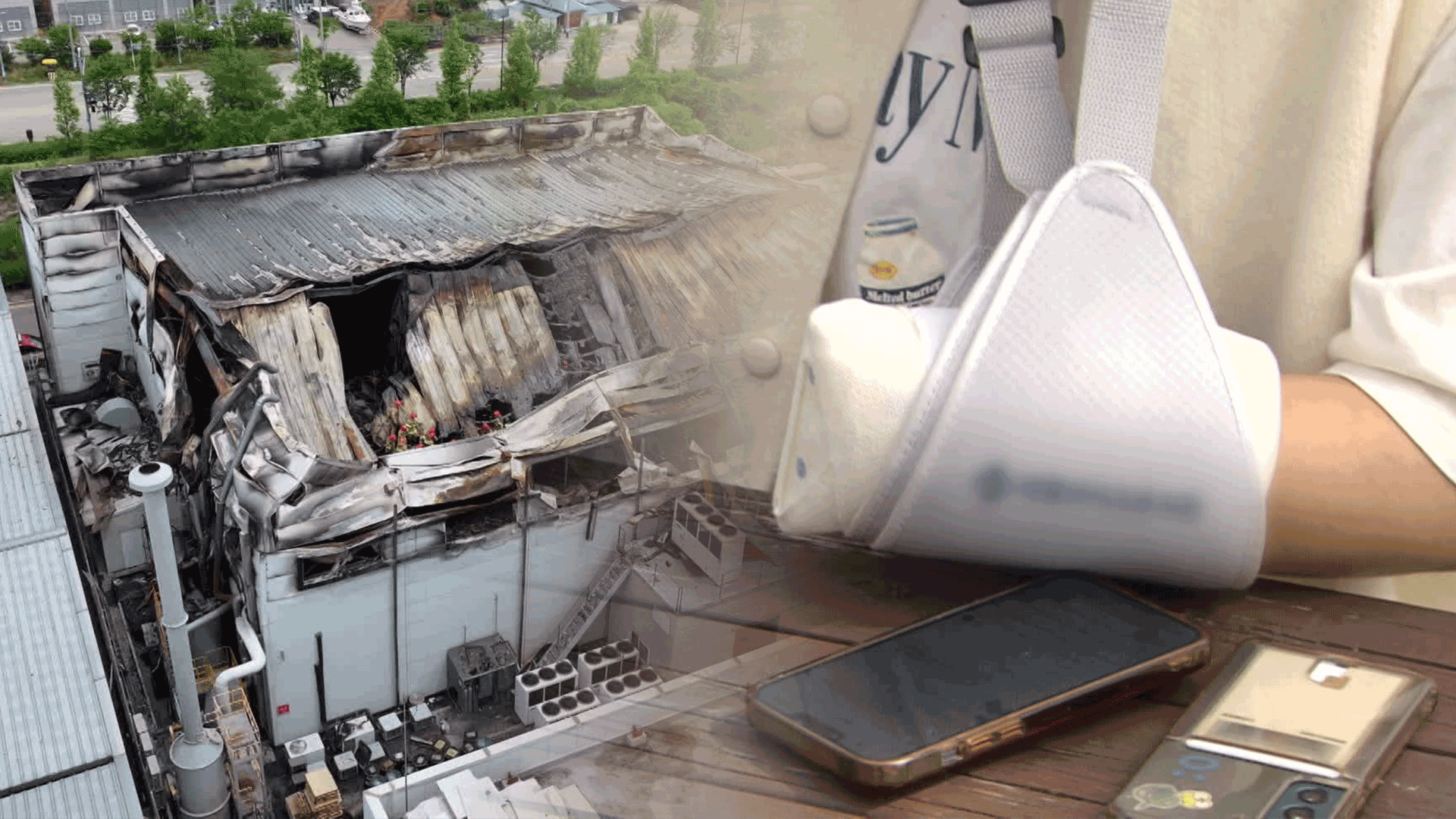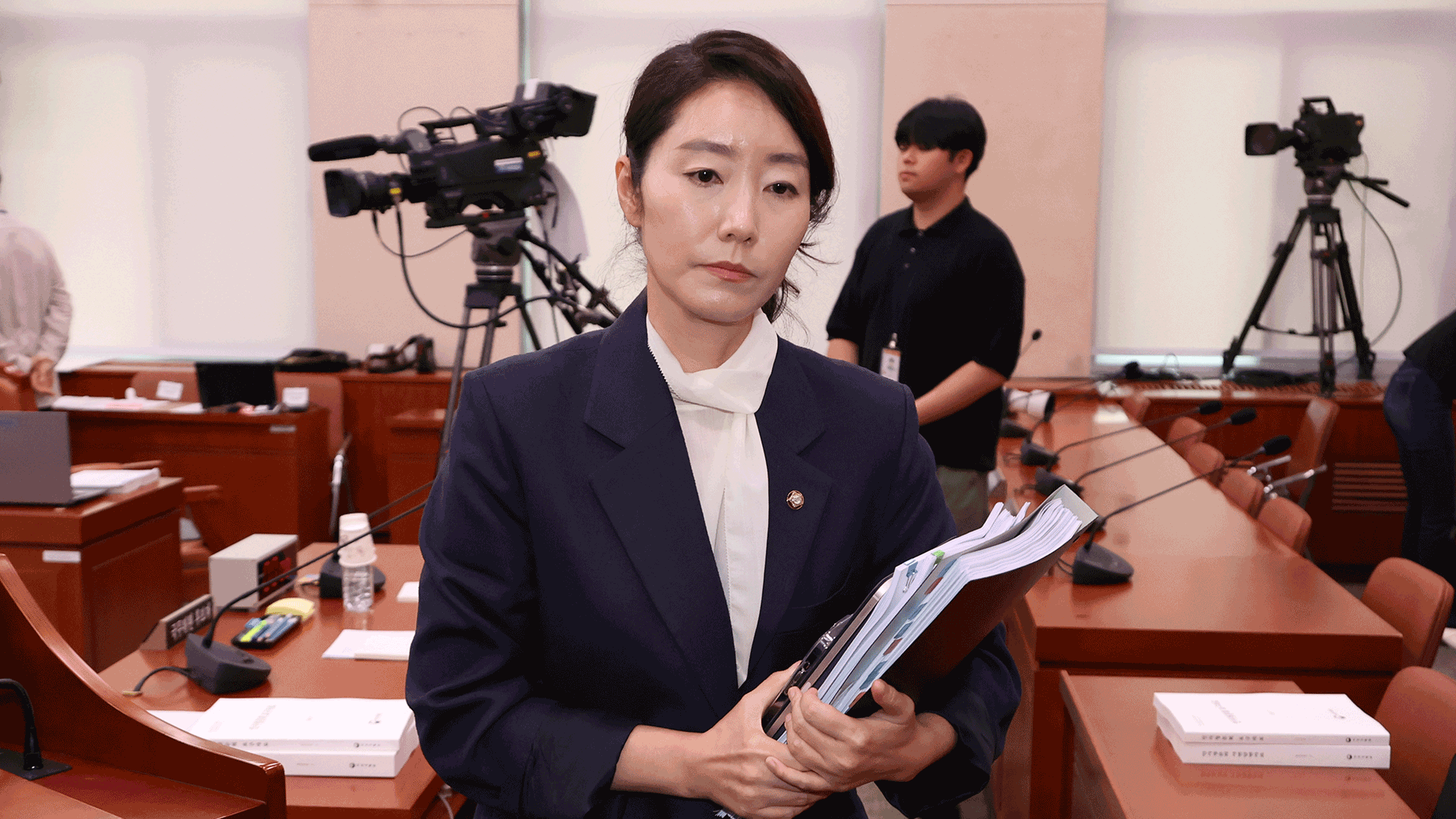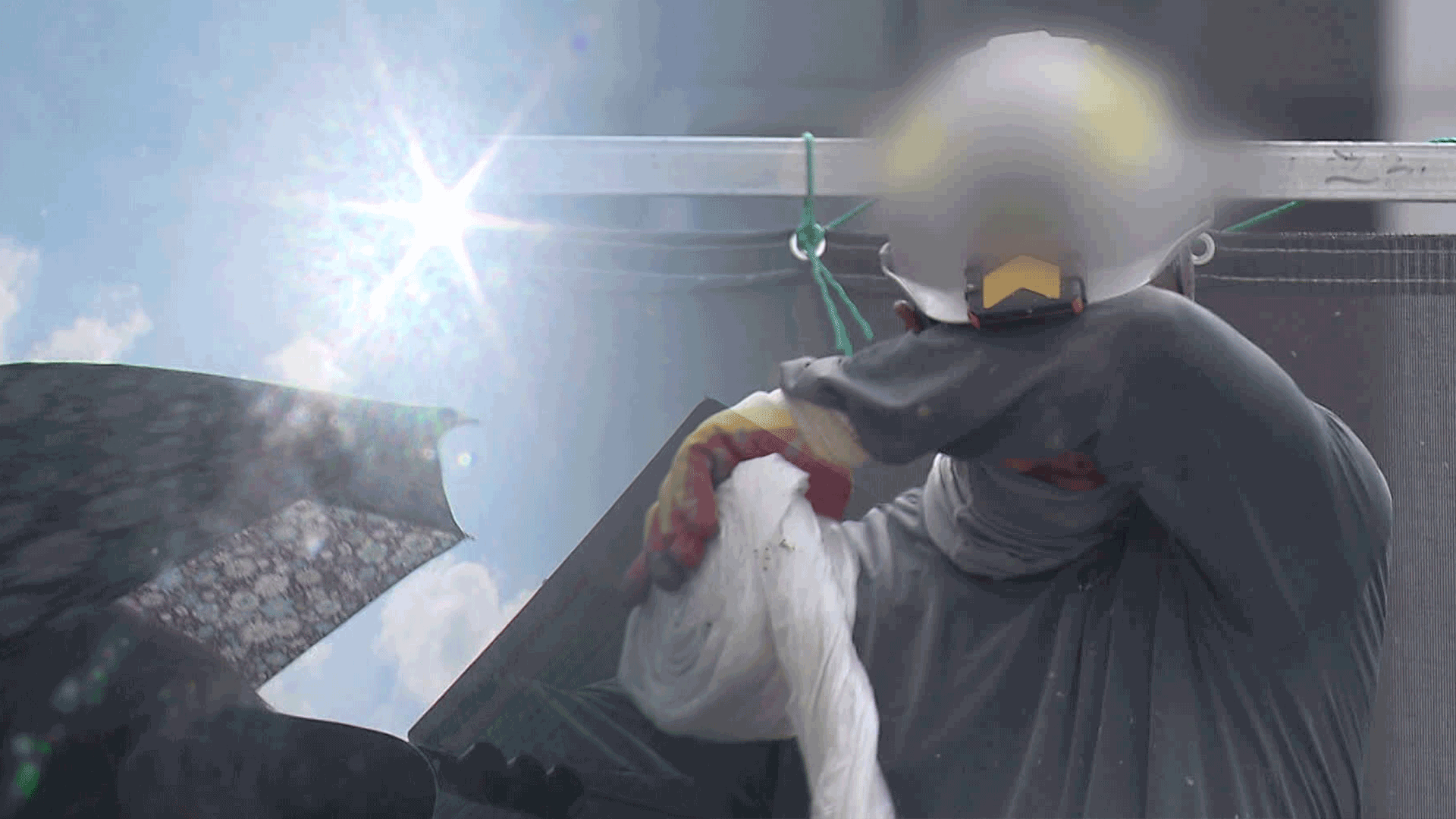[Anchor]
Among the victims of the Aricell disaster, a significant number were foreign migrant workers.
The issues of safety and treatment for migrant workers have been clearly highlighted, but has the reality changed at all a year after the disaster?
Next, reporter Bae Ji-hyun has the story.
[Report]
Migrant worker A worked in a factory handling chemical substances.
At the end of last year, he suffered an accident where toxic chemicals entered his eyes and was recognized as an industrial accident.
The factory claims that they handled the accident according to procedures and provided safety training, stating that there are no issues.
However, the injured migrant worker has a different perspective.
[A: Bangladeshi migrant worker/voice altered: "Every time an accident happens, they (provide safety training) and then after 1 or 2 weeks, they just get a signature saying that training was received."]
Another migrant worker, B had his wrist severed while working in a meat processing plant.
He even complained that there was no formal safety training at all.
[B: Thai migrant worker/voice altered: "The manager says that using tools slows down the work speed. In the two years I've worked, I've never received safety training."]
In the past three years, less than one in ten migrant workers have received government-sponsored safety training after entering the country.
Last year, that ratio decreased even further.
[Kim Dal-seong/Director of the Pocheon Migrant Workers Center: "Many employers skip safety training to maximize profits..."]
Even after the Aricell disaster, the reality faced by migrant workers has not changed significantly.
[Lee Soon-hee/Family member of Aricell disaster victim: "(There is) no guarantee that such disasters won't happen again. Whether domestic or foreign workers, safety training is the most important..."]
The government announced measures to prevent a recurrence of the Aricell disaster last August, but only three workplaces have received support for installing safety signs for foreigners.
[Choi Myung-sun/Director of the Korean Confederation of Trade Unions Occupational Safety and Health Office: "There is almost no execution record. They are not accepting requests like 'at least establish a dedicated department.'"]
A bill to amend the Industrial Safety and Health Act to ensure that all migrant workers receive basic safety training was proposed today (June 24), one year after the disaster.
This is KBS News, Bae Ji-hyun.
Among the victims of the Aricell disaster, a significant number were foreign migrant workers.
The issues of safety and treatment for migrant workers have been clearly highlighted, but has the reality changed at all a year after the disaster?
Next, reporter Bae Ji-hyun has the story.
[Report]
Migrant worker A worked in a factory handling chemical substances.
At the end of last year, he suffered an accident where toxic chemicals entered his eyes and was recognized as an industrial accident.
The factory claims that they handled the accident according to procedures and provided safety training, stating that there are no issues.
However, the injured migrant worker has a different perspective.
[A: Bangladeshi migrant worker/voice altered: "Every time an accident happens, they (provide safety training) and then after 1 or 2 weeks, they just get a signature saying that training was received."]
Another migrant worker, B had his wrist severed while working in a meat processing plant.
He even complained that there was no formal safety training at all.
[B: Thai migrant worker/voice altered: "The manager says that using tools slows down the work speed. In the two years I've worked, I've never received safety training."]
In the past three years, less than one in ten migrant workers have received government-sponsored safety training after entering the country.
Last year, that ratio decreased even further.
[Kim Dal-seong/Director of the Pocheon Migrant Workers Center: "Many employers skip safety training to maximize profits..."]
Even after the Aricell disaster, the reality faced by migrant workers has not changed significantly.
[Lee Soon-hee/Family member of Aricell disaster victim: "(There is) no guarantee that such disasters won't happen again. Whether domestic or foreign workers, safety training is the most important..."]
The government announced measures to prevent a recurrence of the Aricell disaster last August, but only three workplaces have received support for installing safety signs for foreigners.
[Choi Myung-sun/Director of the Korean Confederation of Trade Unions Occupational Safety and Health Office: "There is almost no execution record. They are not accepting requests like 'at least establish a dedicated department.'"]
A bill to amend the Industrial Safety and Health Act to ensure that all migrant workers receive basic safety training was proposed today (June 24), one year after the disaster.
This is KBS News, Bae Ji-hyun.
■ 제보하기
▷ 카카오톡 : 'KBS제보' 검색, 채널 추가
▷ 전화 : 02-781-1234, 4444
▷ 이메일 : kbs1234@kbs.co.kr
▷ 유튜브, 네이버, 카카오에서도 KBS뉴스를 구독해주세요!
- No progress on migrant safety
-
- 입력 2025-06-25 00:06:18

[Anchor]
Among the victims of the Aricell disaster, a significant number were foreign migrant workers.
The issues of safety and treatment for migrant workers have been clearly highlighted, but has the reality changed at all a year after the disaster?
Next, reporter Bae Ji-hyun has the story.
[Report]
Migrant worker A worked in a factory handling chemical substances.
At the end of last year, he suffered an accident where toxic chemicals entered his eyes and was recognized as an industrial accident.
The factory claims that they handled the accident according to procedures and provided safety training, stating that there are no issues.
However, the injured migrant worker has a different perspective.
[A: Bangladeshi migrant worker/voice altered: "Every time an accident happens, they (provide safety training) and then after 1 or 2 weeks, they just get a signature saying that training was received."]
Another migrant worker, B had his wrist severed while working in a meat processing plant.
He even complained that there was no formal safety training at all.
[B: Thai migrant worker/voice altered: "The manager says that using tools slows down the work speed. In the two years I've worked, I've never received safety training."]
In the past three years, less than one in ten migrant workers have received government-sponsored safety training after entering the country.
Last year, that ratio decreased even further.
[Kim Dal-seong/Director of the Pocheon Migrant Workers Center: "Many employers skip safety training to maximize profits..."]
Even after the Aricell disaster, the reality faced by migrant workers has not changed significantly.
[Lee Soon-hee/Family member of Aricell disaster victim: "(There is) no guarantee that such disasters won't happen again. Whether domestic or foreign workers, safety training is the most important..."]
The government announced measures to prevent a recurrence of the Aricell disaster last August, but only three workplaces have received support for installing safety signs for foreigners.
[Choi Myung-sun/Director of the Korean Confederation of Trade Unions Occupational Safety and Health Office: "There is almost no execution record. They are not accepting requests like 'at least establish a dedicated department.'"]
A bill to amend the Industrial Safety and Health Act to ensure that all migrant workers receive basic safety training was proposed today (June 24), one year after the disaster.
This is KBS News, Bae Ji-hyun.
Among the victims of the Aricell disaster, a significant number were foreign migrant workers.
The issues of safety and treatment for migrant workers have been clearly highlighted, but has the reality changed at all a year after the disaster?
Next, reporter Bae Ji-hyun has the story.
[Report]
Migrant worker A worked in a factory handling chemical substances.
At the end of last year, he suffered an accident where toxic chemicals entered his eyes and was recognized as an industrial accident.
The factory claims that they handled the accident according to procedures and provided safety training, stating that there are no issues.
However, the injured migrant worker has a different perspective.
[A: Bangladeshi migrant worker/voice altered: "Every time an accident happens, they (provide safety training) and then after 1 or 2 weeks, they just get a signature saying that training was received."]
Another migrant worker, B had his wrist severed while working in a meat processing plant.
He even complained that there was no formal safety training at all.
[B: Thai migrant worker/voice altered: "The manager says that using tools slows down the work speed. In the two years I've worked, I've never received safety training."]
In the past three years, less than one in ten migrant workers have received government-sponsored safety training after entering the country.
Last year, that ratio decreased even further.
[Kim Dal-seong/Director of the Pocheon Migrant Workers Center: "Many employers skip safety training to maximize profits..."]
Even after the Aricell disaster, the reality faced by migrant workers has not changed significantly.
[Lee Soon-hee/Family member of Aricell disaster victim: "(There is) no guarantee that such disasters won't happen again. Whether domestic or foreign workers, safety training is the most important..."]
The government announced measures to prevent a recurrence of the Aricell disaster last August, but only three workplaces have received support for installing safety signs for foreigners.
[Choi Myung-sun/Director of the Korean Confederation of Trade Unions Occupational Safety and Health Office: "There is almost no execution record. They are not accepting requests like 'at least establish a dedicated department.'"]
A bill to amend the Industrial Safety and Health Act to ensure that all migrant workers receive basic safety training was proposed today (June 24), one year after the disaster.
This is KBS News, Bae Ji-hyun.
-
-

배지현 기자 veteran@kbs.co.kr
배지현 기자의 기사 모음
-
이 기사가 좋으셨다면
-
좋아요
0
-
응원해요
0
-
후속 원해요
0













![[단독] 리튬 테마주로 탈세한 ‘꾼’에 천억 대 세금…국세청, 특별세무조사](/data/layer/904/2025/07/20250723_yoocZj.png)

이 기사에 대한 의견을 남겨주세요.